Plucking Apples Of Silver And Gold
The Thirty-Fourth Revelatory Interview
By Phil & Sarah Stokes, 9 to 24 April, 2020
Revelations : "Clive, although we speak often, we’re conscious that that this is the first conversation we’re putting on record as a Revelations interview for some time. We’ve got plenty to cover in terms of new projects but perhaps to start, we should note that we’ve been incredibly heartened by the number of teachers who’ve been in touch seeking one-time licences to continue reading and teaching The Thief of Always to their classes during this period of remote teaching."
Clive : "I love that!"
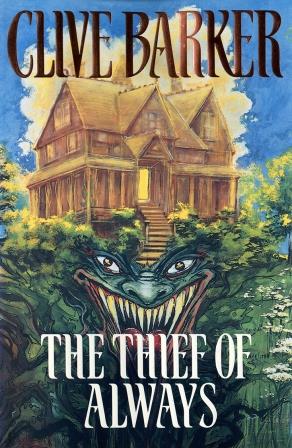
Revelations : "There’s a phenomenal number of teachers who are passionate about the storytelling within Thief and classes who are immersed in Harvey’s adventures and I wonder if there’s anything that you’d like to say to anyone who is teaching or studying it?"
Clive : "One of the things I’ve missed in this period of being ill is, not just meeting people at conventions but being able to do things, you know, such as the stuff I did with Peggy in Alaska, teaching a class long-distance. If I’d not been a writer I would have been a teacher, I’m very sure of that – not because I felt I had some profundity to impart but because I like social intercourse which allows for a dialogue, for an exchange of thoughts. And I was also very aware that the teachers who impacted me as a younger man impacted me for life, yes? Obviously Norman Russell, obviously the late Alan Plent: two magnificent minds; two magnificent enthusiasms, one for literature, one for painting. They were my two maestros. I was blessed to have these two men.
"So, if I can be a tiny, tiny echo of those two guys for other people, I want to be that. And if I can empower other teachers to take what I’ve written and use it to enthuse classes, whoever they may be, wherever they may be, to feel what I feel and what obviously the teachers feel and what apparently the classes feel too for the written word – let’s be clear that’s what I’m talking about, we’re talking about the written word, the rarest and least celebrated thing in our present culture: the written word. To find that people are teaching that and that the people who are receiving the lessons are enthusiastic about it and want more, how could I ever say no to that?
"Nothing gives me greater delight than either speaking directly to classes or knowing that somebody is speaking on my behalf to classes – and there’s no sense of that ‘this will be make them lifelong fans’ kind of bullshit, this is about people having – so many people – this is the most often said thing about Thief of Always: ‘This is the first book I read. This is the first book I read, and now I’m a reader.’
"I can’t remember the first book I read – oh, yes, I can, actually: Peter Pan – but I remember discoveries that were post-Peter Pan. The Wind in the Willows, one chapter from Wind in the Willows particularly – you know what I’m going to say – Piper at the Gates of Dawn, yes?"
Revelations : "Oh yes - "
Clive : "Which is unbelievable prose – Graham Greene is said to have said that when he goes to heaven he only wants to sit by Grahame, the author of The Wind in the Willows, because he learned everything he needed to learn from Wind in the Willows, which is awesome, is it not? It’s an unlikely pairing, I have to say, but there you go!
"On Thief, there are a lot of people who come along and say, ‘I can’t wait for this to be a movie.’ And I can’t wait for it to be a movie either, don’t get me wrong, but I would hate it if the movie ever supplanted the book. Movies are wonderful experiences but a book belongs to you as a reader personally; it is your Thief of Always, not Clive Barker’s, it’s your Thief of Always. In your head – we’ve spoken about this, probably one of the earliest conversations we ever had – within the round of our skull, within the circle of our skull, the great works play out for us personally – they are private plays, in which we cast them, costume them, design the scenery and they make those stories, however specific the narrative may seem to be, yours. And if the first thing that comes alive in the heads of people who didn’t think they liked reading is Thief of Always, I could not be prouder.
Revelations : "That works beautifully. We talked in our last interview for Revelations about your illness and long recovery and that you’ve been back out in the world as well as hard at work at home. We know from questions that we field that people want to hear (a) that you’re recovering well, and (b) more about the prospect that they’ll be able to read and see new written and film and TV work and other projects in the near future."
Clive : "I preface this by saying something that many people know, but far fewer than I thought – that I’ve been very sick and if you don’t mind, you can fill in the dates for me – I went into hospital, into a coma, and was not expected to live for a while there. It was toxic shock, which I got from going to the dentist, which is apparently the commonest way that guys are visited by this sickness which is very often fatal. Because what it’s doing is deconstructing your immune system and your power to keep yourself well and allowing all kinds of… well, it just makes the body go to hell. And it’s because the bacteria of some kind is pocketed somewhere in the body and then released and it my case it was in a tooth and my dentist had not cleaned out the place he sealed up. And over a period of years a massive infection grew, unseen. He visited it, unsealed it and six hours later I was unconscious. I clearly remember the last moment of consciousness – I was going to the bathroom to prepare for bed, washing my face I looked in the mirror and thought, ‘I don’t feel very well,’ and that was the last thing I knew.
"So, for what has turned out to be years since, I have been in various states of unwellness and I feel weird about speaking about this; I’ve been close to death twice, I had a second coma, I’ve lain in bed for how long? I don’t know, a year, two years, I don’t know, unable to walk, unable to walk next door, to my house next door. None of this is catching, none of this was viral or anything like that, I was just very, very, very sick."
Revelations : "The toxic shock and first coma was eight years ago now – and you had us worried for long periods, with a couple of serious relapses. We think people understood and appreciated that you were very sick because you essentially disappeared from view for five years – "
Clive : "But I don’t think they knew why – and certain people, one in particular, did a lot of their own work to make sure people didn’t know why."
Revelations : "We shouldn’t underestimate, you were very, very ill and the recovery took a very long time. There were two occasions when we were over in Los Angeles with you, once in the summer of 2012 and the other in late 2014 when you just couldn’t get out of bed to see us."
Clive : "And I felt awful about that, just awful. When you lie in bed and you literally can’t get out of bed for a very long time, your legs start to weaken because they’re not being used and, you know, when you’re sick you’re in defiance constantly."
Revelations : "You were not only bedridden but you were on serious pain relief for a while."
Clive : "Yeah, yeah."
Revelations : "And that takes its toll – both physically, as you rightly say, but also a toll mentally, in terms of being bedridden and not being active: for someone like you, someone who’s extremely driven by nature, that must have been especially tough, not least in terms of getting creative ideas out of your head and down – "
Clive : "– and on to the next thing, yeah."
Revelations : "So fifteen months on from our last interview, how are you feeling now, because you’ve been to a lot more conventions and film festivals since and you’ve seen a lot of people?"
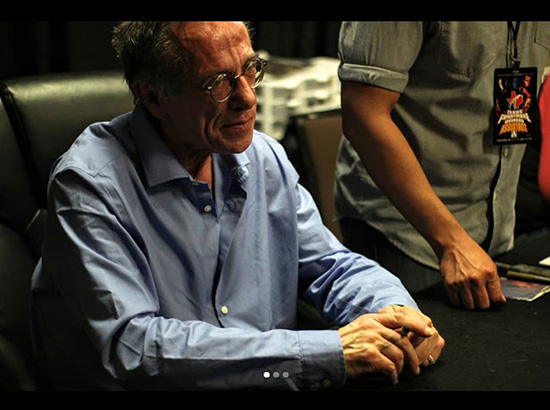
Clive : "Oh God, yes! And I would have gone to a lot more conventions in the last three, four months with quite a few ahead of me if it had not been for the virus. I had, I think, six conventions set for the period between now and September, October? Some of those may yet happen but, you know, who knows?
"I thoroughly enjoyed – and I think anybody who came to the conventions knows this to be the case – thoroughly enjoyed going back to see my friends! By my friends, I mean my readers, you know? It was bloody wonderful – we had just a couple of absolutely enormous signings, thousands of people, particularly one in Texas, which actually I would have been doing again in about a month’s time."
Revelations : "Right."
Clive : "It was wonderful. The universal experience was extraordinary – it was like coming back to life again. You guys know probably better than anybody out there how much I value being with and speaking with and debating with and drawing for the people who wait in line for me. I’ve always been astonished by people’s patience and kindness. I’ve always felt as though I owed them more than a casual scrawl of a signature and ‘Next!’ you know? I just don’t like that. And there are some people who do that, some writers who do that and I’m just not one of them, never have been. Even though the numbers in a few of the places have been so large that I’ve been hurried along by people, you know, ‘Get on with it, get on with it – stop talking to people!’, to me that’s antithetical to the whole point of being there. Yes, of course people want books signed, but I think they would like to know how I am, they would like to know what’s next, you know, when’s the third book of The Art coming, when are the last two books of the Abarat coming – you know, they have questions, quite rightly!
"And I have been slowed in those endeavours by becoming very ill, and one of the things which troubled me – the only thing that really troubled me about death was being parted from those I loved, and not finishing the work. That drove me to a sort of crazy frustration on those days when I simply couldn’t work, which unfortunately was a lot of those days; I just didn’t have the energy to – it sounds silly doesn’t it – but the energy to put pen to paper."
Revelations : "I don’t think it sounds silly at all. I’m intrigued as to when you interact with people – who clearly are delighted to see you back in the world and may have feared that you were never going to be back in public again given everything they’d heard – are there regular, recurring conversations that people have with you? Not just about where’s the third book of The Art and Abarats four and five, but broader questions about you, the work; what is it that motivates them to come and see you?"
Clive : "They thought they wouldn’t see me again, that’s one of them. I think, given our social media age, word got around from a couple of sources who were, I thought, my friends that they would never see me again. That I would never be in a public venue again because I was incoherent, intellectually erased, that I would have nothing to give because I wasn’t there anymore.
"One person made my situation seem even worse than it was; he made sure people ‘knew’ that I was intellectually incapable now, that I would never again write, that I would never again be a creative, cogent person – this is devastating to even say now, honestly.
"These are very hard things to hear. The fact that they came from friends – people I thought were my friends, and one in particular – was devastating. I don’t want to underestimate, in terms of my being ill, the effect of that.
"Hearing, as I started to more and more, that I was being spoken of in these terms, even at this moment, makes my stomach turn over. And having no power to undo that was making my stomach turn over. It became apparent to me far sooner than I perhaps indicated that there was a conspiracy afoot and I couldn’t speak to you about it, I couldn’t get anyone to believe me, which was just terrible. I was lying in a bed and the reference here is Whatever Happened to Baby Jane: ‘But you are, Blanche, you are!’ Sorry, that’s a camp reference: ‘I wish I wasn’t in this wheelchair,’ – ‘But you are, Blanche, you are!’
"It was horrible, it was fucking horrible – the worst time of my life, with the exception of the passing of my parents. And the death of Alton.
"I found that my friends were not my friends which turned out to be fiscally, but more importantly emotionally, devastating and leaves me with a lot less faith in the world."
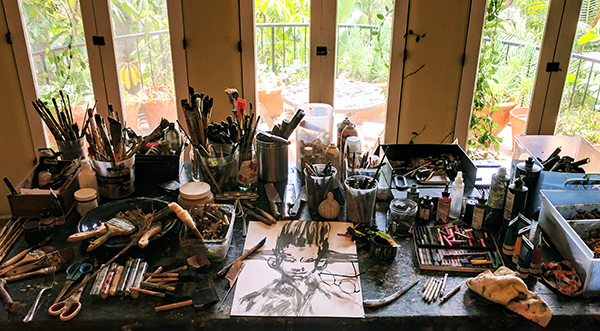
Revelations : "It’s worth recording that the spread of this story was pretty extensive, wasn’t it, in terms of what people you’ve reconnected with since, who’d lost touch with you in that period, have said: so professional and personal connections both suffered."
Clive : "I would say more professional than personal. It would be wrong to say that it was simply the sickness which was destroying me, it was the knowledge that something that I had built over the better part of my lifetime was being destroyed behind my back. And I knew it, and probably you guys knew it but we didn’t speak to put our heads together – and this individual knew that that shouldn’t happen, because there was motive to make sure we didn’t talk.
"It was a perfect storm: it was a man who almost died coming back to life and being told he wasn’t alive anymore by somebody who had, in the midst of my being ill, drawn up a contract, a document that said upon my decease 50% of everything I have would become his. Now, when it’s said plainly like that, I hope it becomes apparent that that is absolutely at the heart of his culpability.
"But I am hugely stronger than I was when we first started to talk again, as I think you can hear in my voice, you know?"
Revelations : "Unquestionably, and as you know we made up for lost times and have been over to stay with you several times – "
Clive : "And I have adored that, I have adored that, you know? The fact that you’ve been next door, literally in the room next door, working away and I’ve heard you chatting and I’ve been chatting to myself, or the bird, and the sense of the family back together again – forgive me that, but it’s how I feel – was sublime, is sublime. The fact that we talk once a week, probably more often than that, is sublime, and it’s empowering, guys – and this goes back to the work – knowing that two people, the two people on the planet who know me best, who understand me best, who are most familiar with who I am, both as a child and a man are there to hear me speak of the work I’m doing, to hear my passion for it again, is life-changing: you have been life-changing. And you need to know this, I think you know this but I need to tell you anyway: there were some people next door who were never excited by what I did."
Revelations : "Some of the correspondence you had with various people from 2015 onwards, though, pulled no punches whatsoever. It must have been clear that you were ‘back’ then?"
Clive : "Yes, and I think that made them arrogant because I was in bed still. The only time I ever got next door to the Seraphim office – the only time I’ve been next door in the last five years – was to take the Scarebaby manuscript over and slam it on the desk. I was partially carried, partially ‘crutcheted’ – a weird word, but there it is – and I said, ‘What the fuck is this?’
"I was too unstable – talking of my legs only – to paint large oil paintings, but I was also denuded of my workplace because certain parties had organised to turn that into money, and so I lost my beloved studio next door. We’ve spoken of this before and I know that you can evoke what it was like to be there because you were there with me more than anybody else. And even though you weren’t here more than two or three times a year it was always in that studio we tended to sit and I have great and joyful memories of that. I’ve lost it; it’s gone. It wakes me up at night thinking about that because it took such a long time to create – that was one of those houses which was just one level, with legs underneath it – yes?"
Revelations : "When you first bought it."
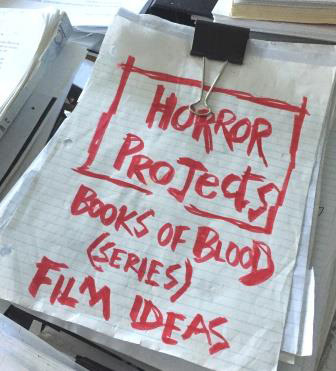
Clive : "Yes, it was a cantilevered house, and what it became was a four storey house with three of those storeys being part of the studio. I painted all the Abarat paintings there, I photographed 190,000 photographs there and when they left, the day it was sold, I asked them to tell me when they were leaving so I could come and say goodbye to the place and they very deliberately drove off without allowing me to do that."
Revelations : "Some great things have started to happen in the last two and a bit years while you’ve been steadily reasserting yourself, you’re explaining all the ideas that are fizzing around and available for work – and there are some things that are happening very soon that – "
Clive : "Well the virus may slow things down a bit but – "
Revelations : "Well, I mean even things like Brannon Braga’s Book of Blood has been shot and is about to come with a repackaging of books with movie tie-ins and, perhaps because there’s been so much secrecy around Nia DaCosta and Jordan Peele’s Candyman, the trailer caused a riot of enthusiasm."
Clive : "Sure – I agree with you – I was surprised at that, frankly, but delighted."
Revelations : "There’s also been so much activity behind the scenes that people haven’t seen the fruits of yet, it would be great to give them a sense of what you’ve been up to for the last two years creatively. At the moment people have to trust that there’s more written work on its way."
Clive : "Oh, yes – well, they won’t have to take it on trust eventually because it will all be seen, but as it stands at the moment you’re absolutely right. I take a long time to write things, anyway, but this time I had a lot of things set against me: legal issues that came from things drawn up that shouldn’t have been drawn up, all these things add up to distractions for a man you know better than anyone is just not comfortable with being distracted, you know? When I write, I write, when I paint, I paint – get the fuck outta here, you know?
"Everything that’s happened in the last few years has happened in this room, I haven’t been able to work anywhere else because, you know, needing to be close to a place where I could lie down. I’ve made, umm, three hundred paintings in this room I guess in the last few years?"
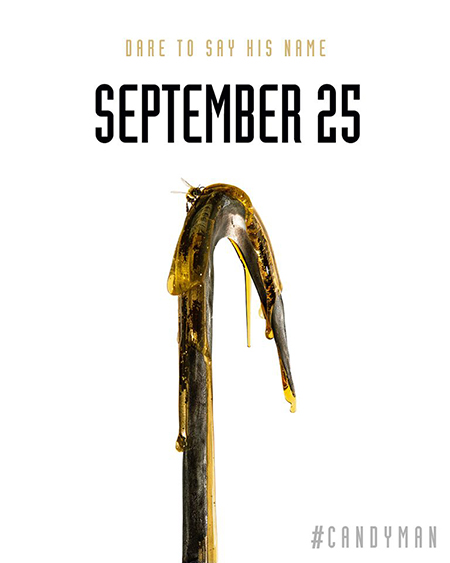
Revelations : "And some, I would say –"
Clive : "OK, yeah, yeah you’re probably right actually, yeah, absolutely.
"I‘ve written a lot of stories and they’re in first draft mainly, and I’ve written a lot of poetry which has become very important to me in this time because poetry is a short form for me – you know, I’m not writing Paradise Lost – and so in a breath of energy, in a short time of energy, I can perhaps set something down and it’s worked very well for me.
"But let’s talk about what I’m doing right now. In no particular order...
"I am doing a collection of original, new and collected short fiction which will be in a way a return to one of the great inspiring volumes of my young writing life which was Dark Forces – Singer is there, and King and Bradbury and Etchison and so on and so forth and, in its sheer diversity it sings. That was always my beginning point for The Books of Blood.
"I realised that over the last many years I had gathered together, from a diverse series of sources, pieces of my fiction that I like a lot – some of them very short – which I wanted to have in one volume. It appealed to me to be able to pick up and access all the pieces that didn’t belong in any other place. So there will be, for instance, all the narratives I wrote for the Nightbreed in a book called The Nightbreed Chronicles which were little stories which I wrote with immense pleasure and I am still very proud of but they’ve only ever been seen really in one place. Now I’m not even sure if that book is in print, the Chronicles, and I thought well, that would be nice to collect together. It would be nice to collect together the narratives that went with the Tortured Souls models which were meant to be standalone fictions, whether you got the models or not doesn’t matter. Those were standalone fictions and they were written as well as I could write anything – they weren’t giving people a lo-res version of my narrative, I was trying to do something as well as I possibly could. Then there were also narratives which have for one reason or another been collected in small collections, collections done for limited presses which will have been read by a really small number of people but in a couple of cases are things that I am very, very proud of. I suppose chief amongst them would be Chiliad, which I’m immensely proud of.
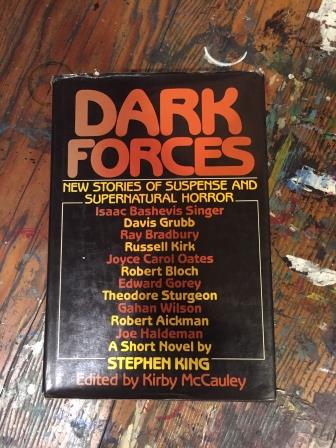
"I would like readers to be able to pick up the collection and find in it just lots of cool stuff, some of which they may have known existed but not read, some of which they probably didn’t know existed – and I think Chiliad falls into that category, well, I know it does because I’ve been to many conventions and people have said, ‘What is this?’
"So I decided to do that but I also decided to add some original pieces that have never been seen before, and so by the time we finish, I don’t know what the word count will be but it will be a substantial book. It will be, I suppose you would have to say, the closest thing to a Books of Blood that I’ve done since The Books of Blood. What is different is that, since The Books of Blood, which were obviously the first books I wrote, I’ve diversified in terms of my genre interests and that diversification is reflected, I think, in this collection.
"There’s nothing in the collection which is as clearly fantastical as Weaveworld – there’s always a darkness in these stories (well, not that there isn’t a darkness in Weaveworld, I suppose) but it’s a very dark collection. So I haven’t explored the really fantastical elements – there’s nothing from Abarat, for instance, or anything Abaratian-like – but it will be a big, diverse collection. So that’s one.
"Two: Deep Hill is now in its last draft – the usual Barker thing, you know, three drafts. It’s very hard for me to access what’s going on with Deep Hill without accessing what happened to Scarebaby… Deep Hill began as an attempt to bring Scarebaby back into my corner, but it had been tainted so badly by what had been done that I just couldn’t deal with it, I didn’t want to deal with it.
"I wrote a story called Scarebaby when I was ill and something strange happened to it: a Funny Thing Happened to it on the Way to the Forum… When I was delivered the Scarebaby text, to sign off on it, and I found it wasn’t the book I’d written, I was furious, and I said, ‘this is not the book I wrote, this has been messed with, a lot, and I don’t like what’s been done to it. At all…’
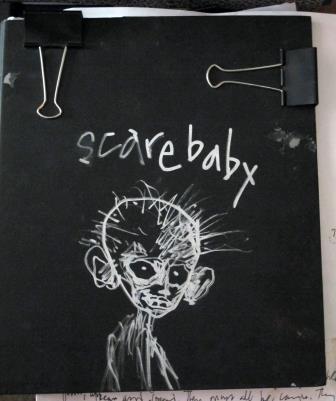
"I’ve got through, what, thirty-four, thirty-five years I’ve been writing – is that right? I’d never had anyone fuck with my work. They tried: you know the story with Sacrament, with being taken to a lunch and being told ‘we can’t publish this because the hero’s gay, but we have an easy fix: just change all the guys he sleeps with into girls.’ And I said 'no, absolutely not and you can have the money back right now if you don’t like it, I’ll sign a cheque, but no.'
"The only way the individual who nearly got away with this on Scarebaby did so was by doing it behind my back.
"So I withdrew the book and said I’m going to go at this again from the beginning. I’m going to do something which is pretty far removed from the original narrative, the Scarebaby narrative, because I felt the narrative had been tainted by this one particular individual who had chosen to put his own mark on it, and it was wretched, it was wretched. It wasn’t what I would have written. And people know what I write, people know my style. I didn’t want Scarebaby anymore because it was associated with bad memories.
"I was so repulsed by the idea of reading my own story but re-made in the fashion of somebody else’s aesthetic that I was revolted by it, it turned my stomach. So I began again, as I’ve been wont to do several times so it’s not a new thing for me, and I love the book I have, and it has really now nothing in common with Scarebaby. It’s a much bigger book, it’s a much darker book and it’s coming along beautifully thank you. It’s not for children – which isn’t to say that it can’t be read by teenagers, but it’s not for children the way that Thief of Always might be. It’s too dark, it’s too serious, it’s too frightening; it has some very scary passages in it.
"The third thing that I’m doing at the moment is editing with Paulo Lorca the book of poetry which you guys will be publishing – can I just break off into a very important subject, the title of the book of poems?
"I wrote a poem called The Presence of this Breath:
The presence of the stratosphere.
The presence of the void.
The presence of presences.
The presence of those who are not present.
The silence of their bodies.
All silences.
All voids.
The presence of this breath.
"I think the book should be called The Presence of this Breath.
"I only realised this last night, that this was the title of choice, I realise it could have almost been written for that purpose. I think, it very much says, the presence being right now, here in this book, of this breath and the breath is Barker’s breath. Whether we put ‘collected poems’ underneath it or simply ‘poems’ – I think that would do the job beautifully because I think it’s a very poetic title."
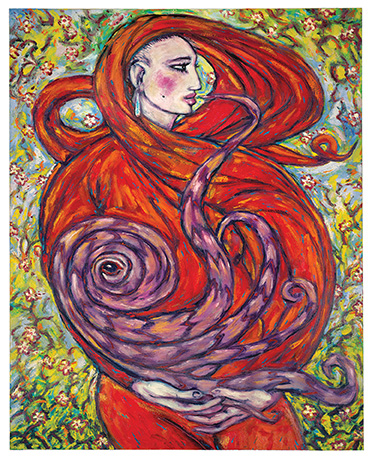
Revelations : "Yes, and breath is a primal instinct, it’s saying that the poems are more instinctual than the long-form written word – "
Clive : "Totally right. It also, I think, says they stand being read aloud."
Revelations : "And it has vitality. Living is intrinsically associated with breath, and, as you’ve written elsewhere, the creatrix of Princess Breath sits behind the creation of all things."
Clive : "Oh, beautiful. It’s also connected with the magic in Imajica – the word pneuma means breath, which is made explicit in the novel, so this is not my first reference to the magic of breathing and the magic of the word being the same thing, in a way. I like the title more the more I live with it.
"I think it’s going to be quite a big collection. It will contain poems that people know from the Abarat books but there will be a lot of poems that nobody has ever heard before. I’m very excited about it because it’s very simple, no illustrations, you know, just the poems and I’m not sure what the number is, over 150, I guess, and it’s very exciting because it’s me at the age of sixty-seven embracing not a new medium for me personally because I’ve always written poetry but I’ve never really made it available to people except through a presence, a poem would occasionally appear in a novel but usually written by a character, not ‘written by Clive Barker’ obviously, so there are poems in Galilee, there are poems in Imajica, you know there are a lot of poems but nothing has ever been put together on this scale.
"And finally, I’ve been working on the Abarat books, the two remaining Abarat books. The room I’m sitting in at the moment has piles of handwritten manuscript which is obviously Deep Hill, which I guess is now about 1,200 pages of handwritten stuff, and hundreds and hundreds of Abarat illustrations, so what I’m trying to do right now is go through these many illustrations and obviously the paintings here which have not yet been seen and I can start to put them together with Abarat Four which needs one more draft, otherwise it’s finished."
Revelations : "There’s a complete narrative."
Clive : "That’s right but because of one or two things – I used to know a great cook called Prue Leith – Prue told me something once that I thought was very important, she said, ‘I’ve always thought that any meal will work as long as you give them a good dessert.’ What is the pertinence of this? Here I am facing Book Five, the final book of Abarat and it is huge. It’s huge in terms of its narrative, it’s huge in terms of its number of characters, it’s huge in the way I want to wrap it up. I want to make sure that all the questions people ever asked – and I’m going to be coming back to you guys about this at some point – all those questions are answered.
"Now, I know people want different ways for the narrative to be resolved and sometimes those narratives will be very, very strongly in opposition to one another but one of the things that’s been… I’ve been ill for a long time, and I haven’t liked being ill, but it’s given me a lot of thinking time and one of the things I thought about a lot was how to resolve the narrative of the Abarat books and within the terms of these characters – by which I mean there very well may be more Abarat books, by somebody else possibly, not by me but it’s a universe that could be revisited by others – but this narrative, Candy’s narrative, Carrion’s narrative, Mater Motley’s narrative has to be resolved in those five books.
"I could never bring myself to do what J.K. Rowling has done so brilliantly, which is to go back to a character and reinvest that character with new problems, new issues and indeed to a mythology whether she’s gone back in time or as I believe she’s now doing, going forward in time to find out what happened, you know, the origins of the mythology which Harry Potter steps into at the beginning of his first book of his adventures – we are seeing at present how that all happened, who Dumbledore was before he was Dumbledore and so on and I think, as I understand it, we are going to see a second series of narratives which are about the older and somewhat changed Harry Potter. I couldn’t do that. Why can’t I do that? Help me with this… please, I’ve written a lot of very diverse narratives and I tend not to want to revisit – even in Abarat, I haven’t revisited the same place twice."
Revelations : "I don’t know what the ultimate answer is to why you wouldn’t revisit but you’ve spent a lot of time working out what the right length for this story needed to be, from a quartet to a quintet, and the way you talk about the final book being a very large book, it feels like it has the right arc, and in order to write something else you’ve got to be outside that arc."
Clive : "Yes. And there’s also being interested in the characters… I have a lot of characters in my head that have not yet spoken, you know, I mean they’re running around in my head yelling, ‘Let me out, let me out, I’ve got things to say,’ and I really do mean that. I have 203 narratives at present, they are all listed and numbered and named which are as yet unexploited, unexplored and they are of every conceivable kind, you know. I would feel as though – I’m sixty-seven you know, I’m not going to write all of those unfortunately but I don’t want to go back and tell more Candy Quackenbush stories when I’ve got all these other stories yet to tell."
Revelations : "Just to pre-empt the question, one of those stories has to be The Art 3..."
Clive : "And it is already. The Art 3 has been begun, for rather longer than I want to own up to. I’ve collected, you know those big plastic boxes, bucket kind of things I have in my house? There’s a lot of them… well, I have four of those filled with Art ideas. The problem with me has never been having an idea. The problem with me is finding time within the structure of my life to exploit those ideas and explore those ideas and you know what will happen eventually: when I fell ill and was in bed for such a long time, I had to do some serious conversations with myself in which I said well, I’m not going to write everything that I’ve got in my head so why don’t I just try to dial down those voices? So there aren’t more of them. But it doesn’t work. It doesn’t work. You’ve seen that it doesn’t work – a small example of that would be the poetry in the sense that you’ve seen that I continued to make poems throughout the time I was ill."
Revelations : "You’ve never stopped the voices coming out in the form in which they were most appropriate."
Clive : "I’m not proud of this at all, I feel as though I’ve got a keg of beer which I don’t have a cork for. I don’t think this is valuable for anybody but us but I’ll say it anyway: being ill was not altogether a bad thing. It was bad because I was ill for too long but it allowed me to think hard.
"I read a lot about the history of artists, writers and painters particularly and one of the things you see over and over again is that people just stop. They often don’t have any reason. I mean Shakespeare just stopped – he went on to live another thirty years but he stopped. He actually had one of his characters lay the staff of power, you know Prospero, down and it is ended. I have no sense that it is even possible for me because I don’t have anything to do if I can’t do that.
"I have a question I need to ask you, if I may?
"In the 21, 22 years we have known each other, have I significantly changed? It’s in relation specifically to firstly our friendship and secondly art. I don’t mean in terms of my politics, or my taste in prunes… I’m trying to figure out if I am still the person I was because I can see it, as I’ve been stepping back and looking at the work recently, I see so many commonalities through the work. It’s almost as if I haven’t necessarily developed."
Revelations : "The reason we started writing the Memory, Prophecy and Fantasy series of books was precisely because we could see recurring themes, for example The Sack into Paradise Street into Weaveworld or Frankenstein in Love into Weaveworld and Hellraiser. Themes recur but are different – recurrence doesn’t, for us, indicate a lack of development – it’s innovation and exploration around subjects that fascinate you."
Clive : "Yes, OK. It’s another conversation and a long one because… The reason I went back to read the books was because I read your books – I read you about me and I thought, ‘Really? Wow!’ I went to look at the books because you’d been looking at the books and made all those connections, having read the plays first. I felt so sad for the plays actually because I feel the plays have a life still, not all of them but certainly Colossus which has never been done. I think Colossus is a fine play and I wouldn’t say that about all of them. I think Crazyface and Subtle Bodies too – but there doesn’t seem to be a venue now that could take and sustain that size of cast unfortunately. I think the editions are super and I love the way that they are laid out but I wish to God I knew how to say to the world, you know, university productions, these plays are here, use them! Maybe this is the place to do that."

Revelations : "We said that we’d make sure that we recognise that the Imaginer series has come to a conclusion in this period."
Clive : "Imaginer is a magnificent fucking achievement – I think I said to you in a note, but it’s hard to be as articulate in a text as I would quite like to be, but I look at those books and I am gobsmacked by your tenacity.
"I told you about the three ‘T’s before, yes, Talent, Taste and Tenacity? John Patrick, the person who told me this, said you only need one of them. I was twenty-five, I said I wanted to be a playwright, and he was a playwright – he wrote The Hasty Heart, the play that Ronald Reagan starred in and became a star in – but Pat said, ‘Ah, you’re a playwright? I have advice for you,’ and it was the three ‘T’s but he said, ‘You know, Clive, you only ever need one,’ and I said what was that and he said, ‘Tenacity.’ And I said, ‘You mean I can do without Talent?’ he said, ‘Oh, God, yes!’
"And God did you stick at it with Imaginer, guys – unbelievable! It’s a sweet feeling to have them complete – it’s also a sort of life-defining feeling for all three of us, surely, a great block of our life?"
Revelations : "Well, it certainly wasn’t without challenges, but it turned out to be enormous fun to do – "
Clive : "Well that’s true – "
Revelations : "And they constitute a great big, black block on our shelves!"
Clive : "And mine too! And happily so. I try to pretend I don’t know what they are when I pass the bookshelf: ‘What is this?’ and I draw forth a book and flick through: ‘Wow! Who is this artist?’
"They are a magnificent achievement, they – I’ll shut up after this – they remind me of my favourite books as a child – which was a set of twelve encyclopaedias, which were copiously illustrated – no photographs, illustrated – and my favourite illustration was a page long, down the length of the page, tracing the Amazon from the source to the sea. It passes through mountains, it passes through places where there are cannibals and I would look at this, literally for hours and study it and, again this is something I’ve never said to anybody: If there is something in my fantastic fiction, if there is some influence on my fantastic fiction which I can point to and say ‘it’s that,’ it is that page."
Revelations : "Hmm – now you’re going to send us on a journey to find that book!"
Clive : "Honestly, I really, really wish I knew what they were called. They were not sophisticated books, they were books I got when I was eight or nine. They were designed for children. They were given to me, I think by my godparents, let’s say this is somewhere between ‘60 and ‘65, in terms of when they were out in the market. There were, I think, 12 of them and they were maybe a third of the thickness of an Imaginer, very brightly coloured, and copiously illustrated, so there wasn’t a single page that didn’t have something illustrated on it."
Revelations : "And illustrated in colour."
Clive : "Yes, throughout. Not, I think, particularly good colour but it was their lushness that I loved. It was what I get from Imaginer – it was opening it and knowing that on every page there would be a surprise, yes?"
Revelations : "I love encyclopaedias. And dictionaries too."
Clive : "Oh, are you kidding me? Absolutely right – I love their paperness – there’s something about a book, isn’t there, there’s something about the Encyclopaedia Britannica having pages as fine as a Bible."
Revelations : "And, even as a child, you could navigate it, you understood the rules."
Clive : "Absolutely, Sarah, but not only that but one thing would lead on to another – "
Revelations : "Oh, definitely – "
Clive : "That’s the problem with Kindle and e-book and Wikipedia equivalents for me because they don’t seduce me in a linear fashion! They don’t seduce me to look elsewhere because you can’t throw it down and have a page arbitrarily come up. There’s no accident, there’s only intent."
Revelations : "Yeah, it takes away the serendipity of discovery."
Clive : "So beautifully said – absolutely right. And that is surely one of the things that is true of both a dictionary, actually three books, I would say: a dictionary, an encyclopaedia and, in my case, the Bible, though for other people another religious book. You can wander, as it were, nomadically through all three such volumes and never come upon the same revelation twice… On that note, I’ll shut up!"
Revelations : "Have yourself a wonderful day."
Clive : "I will my loves..."
When we reconvened, artwork and poetry were front of mind.
Revelations : "We included in the introduction for Imaginer 8 your mixed feelings when you sell an original piece of your artwork when you said:
"We’ve had a great response to people buying original artwork through the Archive site and we know also you’ve had a similar response at conventions over the past couple of years where you’ve shown and sold works on paper."
Clive : "Yes, that’s great and knowing these pieces have found loving homes is wonderful for me as an artist. What distresses me, though, is that I’m seeing a number of pieces of my art – both large scale oils on canvas and smaller works on paper – being sold elsewhere without me knowing how they’re even out there in the world for sale.
"I always had good sales records – back from the days with the Bess Cutler Gallery in New York and with Bert Green here in Los Angeles, but I’m discovering that a large number of paintings and drawings that I thought were here in the house with me are not here. There are significant gaps in the records in the last five or ten years."
Revelations : "We talk regularly with people who own your work – and we’ve bought pieces ourselves in recent years – and you’ve always gifted pieces to friends and collaborators, right back from schooldays through to now."
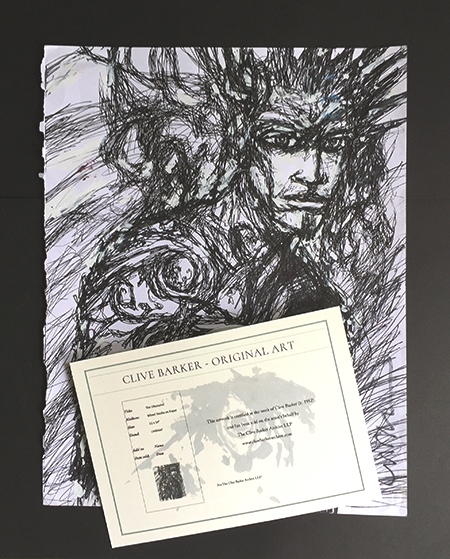
Clive : "You’re right, but whenever I’ve sold or gifted a smaller work, works on paper I mean, whenever I’ve allowed them to leave my possession, I’ve habitually signed them, as provenance. I’m seeing pieces for sale at the moment, works on paper, that aren’t signed. More importantly, though, I don’t know how they and a large number of signed pieces are in the market. I’ve also seen some large scale canvases in people’s possession that I thought I still had here.
"One thing I’d like to do is to get people a certificate of some kind – like you do with all the pieces sold through the Archive – so they have something that authenticates their pieces for them. Would you perhaps make this a broadcast message from me, asking people who’ve bought my artwork, and I mean ever bought a piece – Bess Cutler and Bert Green pieces as well as ones that I’ve sold in recent months at conventions and ones that I did not know were being sold – that if they contact the Archive, the three of us will work to get them a retrospective certificate? I’d just love to know where these pieces are – and in some cases how they got to where they now are – and that they’re in good homes?"
Revelations : "We’ll do that. * Contact us here *
"To return to a conversation we’ve been having: we’ve been talking as you edit the collection about how the Abarat poetry fits within the body of work."
Clive : "I think these poems are very accessible poems, by and large. When they’re obscure they’re eloquently obscure – like a couple of the poems from Abarat are just celebratory in their word-music – but most of them sort of make sense – it’s not Pound, it’s not Eliot, you know?"
Revelations : "No, and I think like a lot of your work for a younger audience it’s accessible to them but to an adult audience or someone with a wider vocabulary they can tie together things and get deeper into what you might be hinting at and get something deeper from it."
Clive : "Yes, and I would say by the time we’ve added in the fifty-nine extra poems that you’ve found in the archive, or whatever percentage it is that are going in, and we lose the loose ends, if you will, the collection’s going to be less for a younger audience than ever. Which isn’t to say a younger audience won’t get it, because if a younger audience is reading the poems in Abarat then they’re getting it, but there are a lot of poems which – I wouldn’t expect the audience of Abarat to read ‘Brother Plato right or wrong’ and get it, you know, if they are pre-pubescent, there’s no reason why they would."
Revelations : "Ah, interesting, I think that’s one of the more accessible ones! I think the idea of two people sharing one..."
Clive : "Two men? Two women?"
Revelations : "I don’t think the poem dictates that."
Clive : "It doesn’t, it doesn’t, but Plato does! But your point is well-taken, I think that observation is not present in the poem; you’re right!
Says the tribe where I belong,
Is a family of souls in two,
Me a half, another, you.
Let us stay together, one tonight,
And prove our Brother Plato right.
"You’re right, you’re absolutely right. I concede the point completely!"
Revelations : "I think it speaks to different audiences in different ways - "
Clive : "Completely right and somebody with a working knowledge of Plato is going to say, oh well, there’s a bunch of homos in this, but you’re right.
"You take that poem from Galilee, you know the one Marietta recites towards the end, yeah?:
Until you came.
None got in and out of me with ease;
Yet when you spoke my name
I was unbounded, like the world.
I never felt such fear as then, being so limitless,
When I’d known only walls and whisperings.
I fled you foolishly;
Looked in every quarter for a place to hide.
Went into a bud, it blossomed.
Went into a cloud, it rained.
Went into a man, who died,
And bore me out again,
Into your arms.
"And you put that side by side with save me from the kin of Doubting Tom, which is very, very rhythmical and very clearly argued: two stanzas of four lines, which takes you from the problem of Doubting Tom and the fact that I, as a poet, don’t want to be amongst those people.
That from Death’s hand there is reprieve;
That I, laid here, will one day rise,
And smell the wind and meet the skies.
My hope is tender though, and must
Be kept from harm by those that dust has blinded,
So I pray: deliver me from
The faithless kin of Doubting Tom.
"And then you take the tiger kin poem – which I think is very lucid, I think it’s very clear what it’s about, yeah? The opening poem of the first Abarat book, yes?"
Revelations : "Yes."
Clive : "I feel like that’s the baseline poem of the issue of word-usage – it’s a complex piece of word-usage but it isn’t a complex piece of thought."
I dreamed I lived in another’s skin,
I dreamed I was my own beloved,
I dreamed I was a tiger’s kin.
I dreamed that Eden lived inside me,
And when I breathed a garden came,
I dreamed I knew all of Creation,
I dreamed I knew the Creator’s name.
I dreamed – and this dream was the finest –
That all I dreamed was real and true,
And we would live in joy forever,
You in me, and me in you.
"To the extent there are densities in the poems, did you find any of the poems difficult? Please don’t hide or conceal any critique that was implied in any of this – we have to talk honestly about this."
Revelations : "There’s a range. There are some that I liked more than others, some that are less easy to interpret than others, but I don’t think they should all be accessible easily."
Clive : "Helen Clarke, who sold me the carpet that inspired Weaveworld, she gave me a copy of the selected works of Yeats, and she wrote in it the two words which E.M. Forster is most famous for: ‘Only connect!’ – yes? And she wrote this on the first page in pencil and I had no clue what ‘Only connect!’ meant but I learned, by life, to understand it. Regrettably it was stolen, but it was a selection that meant a lot to me (especially now that Helen’s gone) because it covered Yeats all the way from the fairy poems to the ‘foul rag and bone shop of the heart’ – in other words the full range of poetic tones which Yeats hits which is immense, yeah?
"I don’t know how fond you are of Yeats – perhaps not! There’s a terrible, telling silence!"
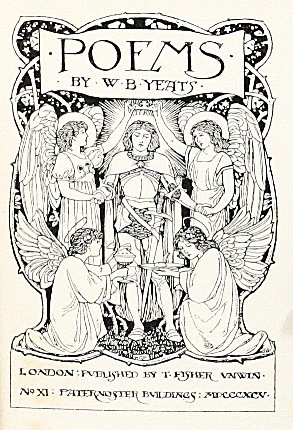
Revelations : "We don’t read as much poetry, and don’t have as many poems by heart as you do."
Clive : "I’m going to send you the titles of three Yeats poems you should read to each other – they will break your heart with their beauty.
"And he also wrote: ‘And pluck till time and times are done, // The silver apples of the moon, // The golden apples of the sun.’ – I just got a huge fucking shudder down my back..."
Revelations : "Well, now we’re talking about what poetry does to you, and how you approach it and you come to different things at different times in your life; sometimes you read and read and read, and then one day something clicks. Some things you read and they are instantly fun and memorable – and I think we’re talking about all these things being present in the work that you’ve collected together."
Clive : "Absolutely, I think that’s true – I have to say the opening lines to The Waste Land predicted our virus: ‘April is the cruellest month, breeding // Lilacs out of the dead land’ – isn’t that weird? It could get a lot a lot crueller, but what I’m saying is, in this moment...
"I was recalling - I have a lot of poems by heart, you know that, and a lot of Shakespeare by heart and, I don’t go around doing open readings at parties, but..."
Revelations : "Not even when you were nineteen…?"
Clive : "No, the person who did it when we were nineteen was Dougie – he was the theatrical chappie there, I tended to go very red, my ears would go very red when he was doing it and I’d slip away from the room! No, he had the theatrical brio which I don’t have – he could command a room, if you like."
Revelations : "Clive, I assume we want to trail that this book is coming?"
Clive : "Oh, God, yes – absolutely."
Revelations : "So I wondered, shall we talk a little bit about why poetry’s so important to you?"
Clive : "Sure! Is that the question?"
Revelations : "Yes, and not just your admiration for other people’s poetry but why is poetry as a form something that you’ve always done?"
Clive : "Because I can’t write songs. Because it’s the closest I can get to music. Schiller says all art aspires to the condition of music – poetry is the next best thing, you know? Because I think when poetry works you suspend your intellect and you let the music take you where the poem wants to take you. And that’s why it’s interesting to me that – and this is going to be a long answer – so, my apologies but, this is a very important subject to me.
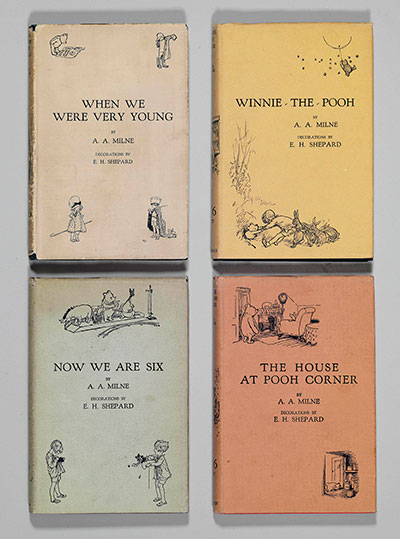
"I’ve always written poetry yes, but before I wrote poetry, I read poetry, and my first reading of poetry was A.A. Milne, yes?"
Revelations : "Oh yes!"
Clive : "
Christopher Robin is saying his prayers.
"I can quote poem after poem after poem from Now We Are Six and When We Were Very Young, those two collections. And they are funny; very often, undignified; Pooh gets –
Grows tubby without exercise
Our Teddy Bear is short and fat,
Which is not to be wondered at;
He gets what exercise he can
By falling off the ottoman,
But generally seems to lack
The energy to clamber back.
"You know, I learned that when I was six and here I am sixty-one years later telling you - "
Revelations : "It’s just delightful, isn’t it?"
Clive : "It’s fucking delightful, it is awesome! And it came from an incredibly sad man, A.A. Milne, you know, who had suffered a lot. And it helped that E.H. Shepherd’s illustrations were there, and they were shown, at The British Museum actually, many years ago now and they are the same size as they are in the books – and exquisite! Absolutely exquisite! Just nib and ink, just beautiful.
"Anyway – so I read those poems and realised that the music of poetry, the music of words was my passion – even when I write prose, I change sentences over and over and over again to get the rhythm right – not to get the information right, to get the rhythm right. You’ll recall, perhaps, that moment when Norman Russell divided one of my essays up into five-foot lines, yes?"
Revelations : "Yes –"
Clive : "Which – I didn’t have a fucking clue what a five-foot line was, I was fourteen! But he had gone through the essay and he’d drawn lines in his red ink through where the foot stopped and another foot began. I’m not claiming some Mozartian wunderkind here, I’m simply saying that I must have had an instinctive sense of what the rhythm was – now that was in an essay about, I don’t know what the subject was, probably The Go-Between, a novel we were studying by L.P. Hartley, and I chose to write it, not realising, in five-foot couplets, five-foot lines. I get incredible pleasure from well-turned lines and I know an awful lot of it is nothing to do with me, I believe it’s God’s gift to me because so much of it comes when I’m not conscious, or semi-conscious. There are many poems in the collection – the first one up of course is Brother Plato – which was there the next morning written on a scrap piece of paper. I’ve no knowledge of writing it at all and nothing changed; it was there!"
Revelations : "Is it always that easy or do you wrestle with some of them and is there a creative process behind some of these poems?"
Clive : "The larger they get, the more I wrestle. But I tend to believe that if I have to wrestle I should chuck it out. It’s not wastage. I don’t think it’s wastage: I feel it’s me listening to my instinct. I feel like a tap dancer, I feel I can sound almost maudlin in my sense of not wanting to claim this for myself but it’s gifted to me, in a way that the prose is not. It took me three days to write the first paragraph of Weaveworld – which is not that long a paragraph, you know! ‘Demons dwindle to clockwork toys,’ et cetera and so forth; it took me a week to write the first paragraph of Imajica, and many people wished I hadn’t wasted my week with that! It’s a different difficulty when you’re writing prose because you want to sidle the poetry into it – you almost want to cheat it in. ‘And this story, having no beginning, will have no end,’ is a gift to me because when I wrote ‘Nothing ever begins,’ I had no idea that was going to be the ending of the book, right? But it was always the ending of the book! Do you see what I mean?"
Revelations : "Yes."
Clive : "When that line occurred to me, which was a page before I wrote it, I started to cry, just bawl, sitting at my desk, because it was the closest thing to a definition of magic that I have in my life – that something was made from nothing – that’s the definition of magic, right? What’s the difference between magic and religion: religion is something made from something, magic is something made from nothing. The idea that I should get through seven hundred and something pages – God knows what it was, handwritten – and get to a page or two before the end and realise what the end sentence would be, you know I just don’t think, and I’ll give you one other example: Abarat turned upside down – I mean, how fucking likely is that, really?"
Revelations : "So that’s visual poetry, if you like, the way – "
Clive : "I make no distinction – "
Revelations : "No, no – I was just wondering if you work poetry into narrative, do you ever look at a poem or part of a poem and think, ‘there’s more story to this, I do want to engage narrative into it or from it – '"
Clive : "Explain that to me again, Sarah – "
Revelations : "When you said, about poetry, that you disengage a narrative intellect – "
Clive : "Ah, I see what you mean, yes. No! Poetry fits somehow; it comes along and fits, or it doesn’t. The poems spoken in Lemuel Lo’s orchard, the poem that Marietta recites, or a few of the Abarat poems were: they were like iron filings and a magnet; they were drawn to one another because of some force within the physical world which obliged them to do that, and had nothing to do with my will."
Revelations : "It’s interesting that in Lemuel Lo’s orchard the ‘show’, the piece of creativity, the art which Cal decided to demonstrate was poetry – "
Clive : "Well, that’s Mad Mooney’s thing – and it also allows him to articulate – you know he says, ‘Forgive my Art. On bended knees, // I do confess: I seek to please,’ In other words, he ends up saying something about himself, his humility.
"It would be very difficult, without getting into horrible verbiage, to describe a song that he sang, to describe a dance that he danced. By choosing a poem you remain within the medium, you know, you remain within the word but the word takes on different attributes, I suppose. He remembers half the poem, you know. I think some of it has to do with me having a Belfast great great grandfather who was a poet – and apparently a terrible one! – and they named a street in Belfast after him but it was blown up and it no longer exists. I have a photograph of him here, with his magnificent beard, but I couldn’t find anything on him, couldn’t find a poem by him, I don’t even know what kind of poet he was really, except that the Irish have a way with poetry.
"Poetry does something that nothing else can do: it uses the language that we’re using now and turns it to a different purpose. And it enhances our sense of our own capabilities, I think:
The silver apples of the moon,
The golden apples of the sun.
"There’s no words in those four lines which are unusual or weird, or poetic even, right? What makes them work is their arrangement on the page and the rhyme. And one of the things I found writing the songs in Hunters in the Snow, is I’ve always loved rhyme. Rhyme is poetry’s secret weapon and I’ve never understood people who – I was surrounded by a lot of very smart people at school: Philip Rimmer, David Fishel, Malcolm Sharps, a lot of very smart people – who had total contempt for my tastes, and it was because I was, I suppose, a little simplistic in my tastes. I was moved by music, and I want to go onto another thing: the other place I learned poetry was Oscar Hammerstein, because Oscar Hammerstein manages to say very, very sophisticated things in very, very simple ways, yes? Two of his pieces deal with racism – The King and I and South Pacific – ‘You have to be taught // before it’s too late // to hate all the people // your family hate,’ now that’s pretty strong stuff. So that would be 1949."
Revelations : "And did you first come upon those because of your Mum and Dad singing?"
Clive : "We only had one album in the house for two years, and it was South Pacific, and my Mum and Dad took me to see it and, it was what Les Mis has been for this generation, I think, transformative. The great ache I have for Kauai right now is sourced in South Pacific, which is where it was shot."
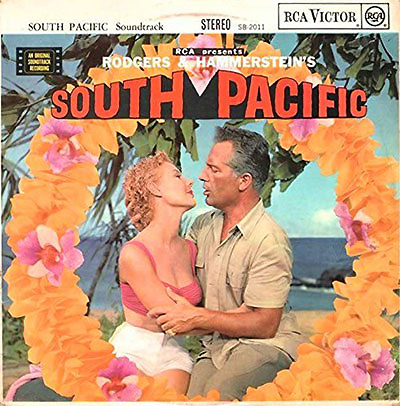
Revelations : "Was it? OK – "
Clive : "Yeah! The beaches I run along are the beaches where Mitzi Gaynor runs and Bloody Mary sings Bali Ha'i:
Any night, any day
In your heart you'll hear it call you
Come away, come away
"Fuck! Fuck! It’s so simple! Even Richard Rogers – Sondheim says Richard Rodgers was a genius with limited soul, but Hammerstein was all soul but wasn’t a genius – because the music for Bali Ha’i came in two minutes, and it took Oscar II six weeks to write the words. I think I write poetry the way that Rodgers writes music – which is pretentious because I worship Richard Rodgers. I would never aspire there but it’s the way it happens to me – I don’t have any control over it, I couldn’t improve it: once it’s done, it’s done.
"He wrote melodies of such sophistication that you have to be slapped across the face to remember what they are, how sophisticated they are, and how popular they were, and how many worldviews they expressed.
"If you think of Anna and the King, (so this is relevant to what we’re talking about, believe me!) when, the first song is: ‘Whenever I feel afraid // I hold my head up high / I whistle a happy tune // and no one will suspect // I’m afraid.’ Yes? It’s Louis and Anna singing together on the ship before they go on to Siam and then you hear the lovers sing – we’re going to be killed for this (I can’t do this or I’ll cry) – the lovers’ song, the male lover singing to the girl he can’t touch, is heartbreaking. And there are three love stories in that movie, three very complicated love stories: there’s Tuptim who’s the girl and her lover, there’s Anna and her dead husband, Tom, which has made her a widow with no money so she has to come and teach the kids of Siam, the first white woman ever to have done so. A Welsh woman, by the way, Leonowens, Anna Leonowens, and she went out there – it’s an incredibly courageous thing to do – 1880, yeah? And she goes out there and of course we’ve got there, as Brits we’ve got there and ravaged the fucking place, raped the fucking place, and she had that to deal with too. And the third love affair is the one where they only touch once, in a song called ‘Shall We Dance?’ right?
"I learned a lot from Oscar, but one of the important things was, sometimes you can say the most important things by negating the things you mean: in Oklahoma it would be, you know, the two lovers saying, ‘Don’t you dare do this, because everyone will know we’re in love.’
Don’t please my folks too much
Don’t praise my charms too much
Don’t dance in my arms too much
People will say we’re in love
"In other words - and he does that several times in a number of musicals: he negates the event, he does it in Carousel brilliantly, brilliantly. Carousel was a French play, Liliom, and it was a literary play – I think Ferenc Molnár wrote it – and it’s obviously not a musical, it’s a play about ghosts, which is – have you ever seen Carousel?"
Revelations : "Yes"
Clive : "Did you see at the National?"
Revelations : "No I saw a wonderful amateur performance of it when I was a child –"
Clive : "Ah, awesome! Sometimes those can be the best things, right? Especially when you’re small, right? The National did, on the Olivier stage, an awesome production, full orchestra and everything, which emphasised how terrible the lives of the people who were living that life were. It started with a massive clock, must have been ten feet across which dominated the thread-spinning factory where the girls all worked. And the overture is a carousel waltz, yes? So listening to that whilst all these girls are slaving away, sweating unhappy grey, was amazing.
"And then the bell rang to say the day was over, the clock swept away, the girls threw off their grey coats and ran into the sunlight, and suddenly it was time for spring. And I’m saying all these things because the things which move me most are very simple things very often, almost always. And I think it’s pretty easy, with the exception perhaps of Imajica and… I don’t know, perhaps just Imajica, to summarise what I’ve been writing about, however long the pieces may be, pretty simply, Galilee is Romeo and Juliet, you know, Black and White: yes, it goes back to the Civil War, but the story is about two mis-matched people. So, of course, is Great and Secret Show though that’s not all it is, but it’s two people who shouldn’t be married, or shouldn’t be in love.
"There is a show on here right now which is America in colour which is just taking stuff from the Twenties through to the Sixties and rendering it in colour and I learned a lot about why I was fascinated by the bomb from the Forties, you know the episode given over to that and, Phil, we do need to talk about your analysis of the book as your favourite because I’m teased and I’m starting to shape up the third book of the Art and it’s got to come back to the bomb, it’s got to come back to Trinity, it’s got to come back to the held moment."
Revelations : "I’ve got my notes in front of me. I’ll give you a teaser – ‘the competing ideas of compression and expansion: time is compressed so that the past, present and future co-exist in one immortal day;"
Clive : "Absolutely – "
Revelations : "Our knowledge of our condition expanded with a clear design that this stage of human evolution will be superseded by several more stages;"
Clive : "Yes – "
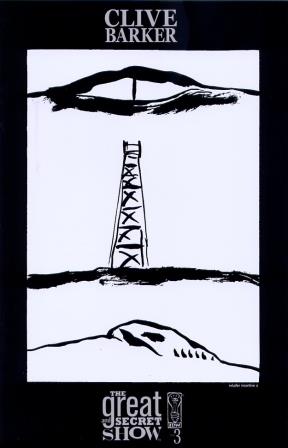
Revelations : "And I’ve written next to it: Iain Banks, sublime, from his Culture novels – "
Clive : "Yes – "
Revelations : "And then, the medallion is a guide, humanity not at the centre, instead imagination is at the centre – "
Clive : "Arguable. Because it’s the Christ figure that’s also at the centre. But you’re missing one, which is the bomb. The bomb is an expansion from something that is tiny to something immense within milliseconds, yes? And if you think about how small – they brought the unit to Trinity in a sedan car!"
Revelations : "Did they?"
Clive : "In a box, a very simple box, slightly larger than a shoebox – wooden, but shoebox sized and it was terribly, terribly, ‘oh we don’t know what we’re doing’ – it was incredibly odd, they were all shirtless and sweating profusely, and you know they were handling this thing as though it was a pair of shoes! And they had no knowledge at all, even Oppenheimer, I think, had no knowledge of what it was going to do – hence the quote, you know, ‘I have become the destroyer of worlds.’ I think he knew – and you know – three weeks before, that letter had gone between Truman and Einstein, saying ‘don’t, whatever you do, don’t’ and ‘it’s not worth a million American lives to bring Japan down.’
"And he had no knowledge of what he was going to do but after it had happened he said ‘this is God’s greatest gift to man.’"
We broke there and regrouped...
Revelations : "In the two days since we last spoke we’ve found your hand-written copy of The Presence of this Breath, which is definitively dated, which is unusual for you – as the 24th of January, 2016. There’s a draft that you’ve struck through, a nicely written-out copy of it and then there’s a copy that been typed up, slightly incorrectly and you’ve corrected the typed copy."
Clive : "You know what’s weird about it, is that it struck me: every now and then I have a moment where I turn a corner and I think, ‘This is a tone that I haven’t achieved before,’ or perhaps aspired to before, yeah? This poem is not like any other poem I’ve written – curiously the closest it comes to is Chiliad, in the sense that there are repetitions, constant repetitions: the river, and so on in Chiliad, but – I don’t know why I like the poem so much, but I really, really like the poem, and I’m so proud of it as a title – I think it expresses the poems and I cannot tell you anything more about it that would be worth listening to because, I can’t tell you anything more about that except the pleasure I take in it. Its sensibility, if we can speak of the poem having a sensibility, is where I am right now.
"This is a very difficult question – and if both of you say, ‘Fuck off, Clive,’ I’ll understand – I’m not talking about an excellence judgement about the poem as to whether it’s good or bad, because it is what it is, but how do you feel about the poem? Is it of interest to you, is it, what is it, does it beguile you, I suppose? Or is it just, less beguiling than it is to me?"
Revelations : "I think it’s got a nice completeness; it’s got a neat rhythm and it comes back to conclude where it started."
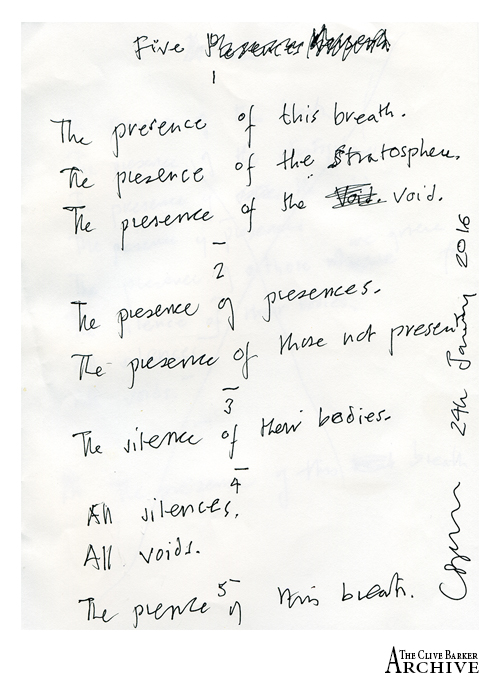
Clive : "It’s a worm Ouroborous, isn’t it – it eats its own tail.
Revelations : "There’s a lot of intentionality about it – "
Clive : "Ooh, you intellectual, you – you’re so intellectual, you are! – no, explain to me what you mean by ‘intentionality’ in that, I think I know but I want to be – well let me tell you what I think you mean: there’s a sense in which the ideas – and there are a very spare number of ideas, there are not a lot of ideas in the poem they’re just placed in reference to each other in a very dignified and delicately balanced way. Is that right?"
Revelations : "Yes, it’s deliberate."
Clive : "It’s deliberate – yes. And what I can no longer say now because I obviously wrote it a lot further away than I thought – I’ve no idea what kind of mindset I was in, I just know that the stanza which made me realise when I reread it now two or three weeks ago was a stanza which I suddenly realised was ‘The silence of their bodies’ – that line which suddenly took us from – the first poem is about expanding from self to cosmos, yes? ‘The presence of this breath. // The presence of the stratosphere. // The presence of the void.’ We’re moving out from the planet."
Revelations : "Yep"
Clive : "And from the self, yes? And then ‘The presence of all presences,’ yes, so now we’re talking about the universal presence of breath, of life, throughout the cosmos.
"But then we start to talk about death, of course – of course we start talking about death! ‘The presence of presences. // The presence of those not present.’"
Revelations : "So of absence."
Clive : "Absolutely, and at that point the poem inverts itself, yes? Because so far it’s been moving from the self into a cosmic sense of the self, belonging in the cosmos because everything is breathing – and then, suddenly everything isn’t breathing, and – how does it go – ‘All presences, all voids’? Is that how it goes?
Revelations : "‘All silences. // All voids.’"
Clive : "Right - the silence of the bodies and then all silences, all voids because that’s the key that turns the lock, those two, those four words, ‘All silences. // All voids,’ opens the lock of the poem because suddenly it delivers you to the end again."
Revelations : "It works for me really because of one change you made. So, this will either be instructive, or you’ll go, ‘what on earth was I thinking?’: in the first draft it is identical except for one line – "
Clive : "I can’t wait, go on – ‘Humpty Dumpty sat on a wall..’! No – "
Revelations : "– which was originally, ‘The presence of those we grieve for.’"
Clive : "Ahh – beautifully said, Phil, beautifully said and my God, yes, what you pointed to right there is the change which makes the poem work."
Revelations : "Exactly, yes!"
Clive : "Because, oh, my God, you’re so smart, absolutely, because if that had been in there it would have been an ordinary poem."
Revelations : "‘The presence of those not present,’ is a word-play right in the middle of the poem – it is the time the poem turns and you use that turn to move it into something different. And you like nothing more than two words that sound the same and aren’t the same."
Clive : "Yes, you’re right – how many times has the word ‘presence’ appear in the poem?"
Revelations : "Seven as ‘presence’ and once as ‘present.’"
Clive : "So eight times really. Which is a lot for an eight line poem! The other thing which – all silences stop, all voids stop – is out of rhythm with everything else in the poem, it’s a slap across the face isn’t it, it’s like everything else has cadence, everything else has the long feel to it and then suddenly, ‘All silences. // All voids.’ And that seems almost like an executioner’s axe coming down, but no, waiting in the wings is the beginning, yes?
"And so, it’s almost like the poem drives us into a place of real darkness, you know, and argues itself into darkness – OK, we leave the self, we go into the stratosphere, we go into the cosmos, we know that there are other presences, we also know they are not present – we know that those presences when not present are silent, in which case the silence of those bodies is the same as the silence of the cosmos. But, we breathe. Right?
Revelations : "I actually think the last line is even more powerful, it’s in the midst of void, life starts again."
Clive : "Yes. Beautifully said. Beautifully said, Phil, yes, absolutely. God, I wish poems were simple! I wish that I… that was probably another poem I think that got written pretty quickly? I don’t know if you could tell from the first draft whether it was a swift write or not?"
Revelations : "It looks like a swift write and then what’s really unusual is you’ve instantly written it out very carefully – quite a lot of the time, the poems are like your text for a novel in that you write it, getting it down as quickly as you can and then you hand it to somebody to type – not this time; you actually decided to do a nicely-handwritten version – it’s because it looks appealing."
Clive : "You mean how it’s laid out it looks appealing?"
Revelations : "Yes."
Clive : "I’m very, very proud of these poems. I think if ever there were a naked art it’s poetry – there’s no story to tell, there’s music to hear.
"One observation: I realised after our last session, that I haven’t done this – not only with you but with anybody for years and years and years and years, in fact perhaps never. Because this is the first conversation I’ve had with anybody which is literally cross-media. I mean, we’re addressing everything, aren’t we, what I mean is we haven’t had the poetry to talk about before and now that turns out to be, at least for me, a more significant part of what I do, in the sense that it is connected to everything I do, in some way or other – I would argue that it’s the blue touch-paper and the works are fireworks; it’s quietly taking you down the path to the explosion of each art and it contains with it – the poems, I mean – the root things, the root issues, the root obsessions which explode in various art forms."
Revelations : "I think if people stand back they won’t be surprised by the body of work that is your poetry because poems and epithets have always peppered everything that you’ve done – right the way back to the opening page of The Books of Blood – "
Clive : "For sure!
Revelations : "You know, the quote that everyone picked up – every body’s a book of blood – "
Clive : "Wherever we're opened, we’re red – "
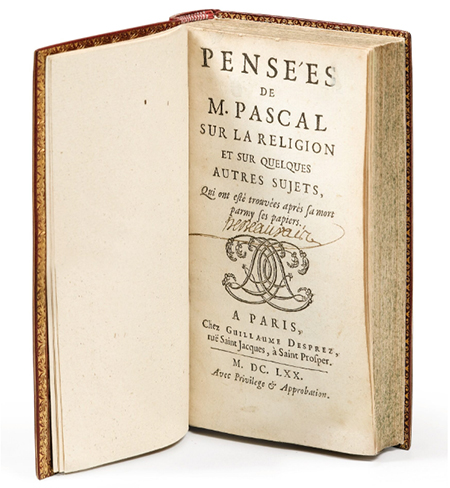
Revelations : "But just as we’re speaking I’ve gone and pulled MPF volume 3 off the shelf, where that wasn’t what you were going to put at the beginning of the books when you first – "
Clive : "Tell me! What was I going to do?"
Revelations : "You were going to preface it with two quotes: one from Pascal, ‘Eternal – "
Clive : "Oh, I know what it’s going to be – ‘I have always feared the infinite silence of space’ – "
Revelations : "Yes, ‘The eternal silence of these infinite spaces frightens me’ and you were going to do it in French because - "
Clive : "Well, it works better in French – "
Revelations : "Yes, and it sounds better if we’re going back to the musicality of words – but the other was: ‘Here comes a candle to light you to bed, here is a chopper – "
Clive : "– to chop off your head – "
Revelations : "– So you were already bringing in that lilting feel – the way that I want you to read this is to have that sort of cadence in your head."
Clive : "But also to have two contrary visions – one which is doggerel, frankly, the other of which is one of the most sophisticated philosophical statements ever made, right?"
Revelations : "Well it’s a corporeal horror of physical injury against a mental horror of banality."
Clive : "Or absence even. The void – "
Revelations : "It’s Damnation Game’s blank space – "
Clive : "Yes, and that’s Yeats, isn’t it."
Revelations : "That’s Yeats?"
Clive : "Yes, which brings the conversation full circle! There is a great quote in Damnation Game, which I think is the opening quote, which is, ‘civilisations do not die – ‘ it’s probably there in front of you?"
Revelations : "It will be… so you’ve got a Yeats at the beginning – "
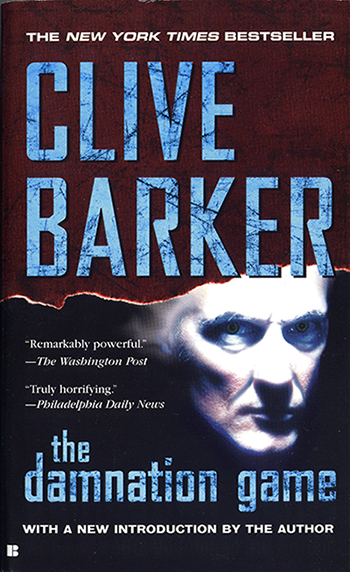
Clive : "Is there not one that prefaces that?"
Revelations : "The one before it is Shelley’s Prometheus Unbound."
Clive : "Yes – ‘neither bound…’ – so where’s the line – "
Revelations : "You’re right, the Yeats is:
They find there what they planted and what dug,
A Lake of Spaces and a Wood of Nothing,
And wander there and drift, and never cease
Wailing for substance.
Clive : "So it’s about void, right? But could you just find the missing one, as it were, which is from a female writer and I’m blanking on the source, but it’s 'civilisations...' - oh, it’s Freya Stark!
"I love it when quotes present themselves, quotes that I’ve either had for a long time, usually had for a long time, suddenly fit. And I think all the poems, all the quotes in that book are apt, nice and I mean nice in the proper sense of accurate, precise. And the great fun of course, with Cabal, was inventing my own. And to this day most people don’t know, and I can show you the articles about ‘the long lost book of so-and-so‘ which I think is hysterical! It was fun writing those quotes but I haven’t been able to do it ever again, and I don’t know why that is."
Revelations : "It’s a bit like when you’ve played a trick or told a joke, it’s never the same..."
When we regrouped, Yeats was again front of mind…
Clive : "I wanted to share with you eight lines of a Yeats poem, the final notion of which you will recognise, Phil, because you quoted it in a different form yesterday. Let me just find it. The poem is called, perhaps you both know it, Sailing to Byzantium. It opens with ‘That is no country for old men,’ which they turned into a movie. The other poem I wanted to recommend to you was The Second Coming which ends with that incredible line: ‘And what rough beast, its hour come round at last, // Slouches towards Bethlehem to be born?’ I think it’s an extraordinary poem, but, the last four stanzas of Sailing to Byzantium which the argument of this poem is that this is no country for old men, in other words it starts with the idea that this is a country for young lovers and the old are disregarded but the poem comes to the conclusion in which he says, well, here it is:"
My bodily form from any natural thing,
But such a form as Grecian goldsmiths make
Of hammered gold and gold enamelling
To keep a drowsy Emperor awake;
Or set upon a golden bough to sing
To lords and ladies of Byzantium
Of what is past, or passing, or to come.
Revelations : "Ah, the last line is The Art… yeah."
Clive : "Yeah. It has more to do with The Art than that. He says, ‘once out of nature I will never take my bodily form for a natural thing: I won’t be flesh, but such a form as Grecian goldsmiths make of hammered gold and gold enamelling,’ yes? What he’s talking about is a mechanical bird to keep a drowsy emperor awake or set upon a golden bough to sing to lords and ladies of Byzantium of what is past, or passing, or to come. Poetry doesn’t get any better than that."
Revelations : "Is that one that you knew from very early on, from when Helen Clarke gave you the book?"
Clive : "It’s one of his last poems and so he goes through two stages in his life, he goes through what we can call the ‘faerie’ period which is a lot about what it says here: ‘when young, Yeats wrote poems like The Lake Isle of Innisfree, which is about longing to be away from the busy world of affairs and to escape to a peaceful life of rural simplicity where there is magic, where there are faeries… but in his later years he realises that is not an escape at all.’ The commentator says, ‘Yeats wrote poems like Sailing to Byzantium about longing to be away from everything in the present world and to escape into an idealised past. Here, an old man tells of his discontent with the summer world of beautiful creatures in their sensual music of loving and singing. For all its warmth and pleasure, that world is an unending cycle of biology: begetting, bearing and being born, dying. Since in that changeful world the body, mind and spirit have no place, an old person can find some comfort only in the idea of a good place in the past..’
"But Byzantium – the reason why I raise it – Byzantium stood at a crossroads between Europe and Asia, North and South, East and West. It has belonged to the Thracians, Greeks, Romans, Crusaders and the Turks and it contains monuments to many sects, pagan religions, Christianity and Islam and I don’t know how explicit I am going to be in the Third Book but in those four stanzas of eight lines, so 32 lines, is so much of the argument which began optimistically in The Great and Secret Show and has moved into a grimmer pessimism as the last years have gone by, for me. He talks, this is no country for old men, and in the second stanza he speaks: therefore I have sailed the seas and come to the holy city of Byzantium. The third stanza I’ll read to you because it’s very particular in terms of its interpretation, the fourth stanza you now know. It’s an immaculately argued poem and it’s an immaculately felt poem and it stands as the acme of excellence as far as I’m concerned.
"I might love the song of old Aengus, the poem I quoted yesterday, you know, ‘silver apples of the moon, golden apples of the sun.’ I love that poem but it’s a short, rhyming, pretty poem. This is not pretty but its rhyme scheme is absolutely immaculate, we just don’t hear it: take, thing, make, enamelling, awake, sing, Byzantium, come, in other words he doubles up on the last line, the last two lines, in other words the structure is AB AB AB CC and that is very hard, and it’s not only very hard it’s very hard to do it four times and keep your argument immaculate."
Revelations : "Yes, that’s the trick, the last bit."
Clive : "The last bit, exactly – to give you the last bits from the other stanzas:
Monuments of unageing intellect.
"That’s one. I’ve just quoted you:
To the holy city of Byzantium.
"And this is the grim one, which is the third one:
And fastened to a dying animal
It knows not what it is; and gather me
Into the artifice of eternity.
"It is so sublimely beautiful and yet so sublimely grim. It’s a difficult poem because it rides on the back of a very rich and unbeguiling argument, you know, to begin a poem as he – he’s sixty-one when he writes it, sixty-one, sixty-two – to begin a poem, ‘That is no country for old men’ when he is indeed an old man at that point, you know, well ‘That is no country for old men, the young in one another’s arms, birds in the trees, those dying generations, at their song, the salmon-falls, the mackerel-crowded seas, flesh, fish, or fowl commend all summer long whatever is begotten, born and dies, caught in that sensual music, all neglect, monuments of unageing intellect,’ which he is; he is neglected – he didn’t marry until he was fifty.
"My friend Julie Blake – her father lived three houses from Yeats in Dublin – you knew that, yes? ‘Oh, here comes the poet, we’d better be careful, there’s the poet,’ and he wore a big scarf about the lower part of his face apparently, whatever the season, which struck the children – at that time Ivan Blake was a kiddie, you know. When does Yeats die – ’39, is it? When Yeats dies, Auden writes a poem of loss The Death of Yeats, 1939 / 1940, so Ivan was at most probably 15 and he was terrified of him! Because he was a poet, you know, and in Ireland poets have a certain… well, they’re thought to be mad, you know, Mad Mooney, yes?"
Revelations : "Yes – "
Clive : "Sarah says yes slightly doubtfully..."
Revelations : "No, I was thinking it’s because they have some sort of connection with something arcane that others can’t touch."
Clive : "Absolutely right, they touch both the sublime and the magical, right?"
Revelations : "I think that’s maybe broader than poets – my Dad’s sister lived in Naas which is twenty miles south west of Dublin and the local singer from Newbridge who would go around with his guitar was Christy Moore, the folk singer."
Clive : "And what kind of songs did he sing – songs he’d song himself?"
Revelations : "His own and traditional Irish and he’d pick up songs from Irish snug bars that had never been written down so he’d keep the oral tradition alive."
Clive : "That’s marvellous and I consider the one saddest song ever written is Irish: Danny Boy – you’re familiar with the song, yes? Listen closely to those words: ‘And I will come when summer’s in the whatever and you’ll be dead as ye well may be and I will stand on the land where you’re buried and you’ – he’s talking to a boy, a boy that he’s cradled in his lap in the first stanza of the song and the sense that’s in all Irish songs, you’re right, Phil, and in poetry, there is this strain of profound melancholy which is both Gaelic and Celtic; I mean you find it in songs of Tiree and Skye, you find it in ‘Speed bonnie boat like a bird on the wing onwards"
Onward the sailors cry.
Carry the lad that's born to be king
Over the sea to Skye
"Kathleen Ferrier’s version of that which was recorded in I’d say the late ‘30s, early ‘40s is a sublime piece of music, sublime – that high contralto voice, and the melody to that song is glorious isn’t it?"
Revelations : "I’ve always found the wistful nature in most Irish folk songs very appealing."
Clive : "Appealing, yes – I would go one tone more profound than wistful, I would say yearning because wistful has a thinner feeling, to have a wistful thought is not the same as a having a yearning thought – I would argue, this is just for myself, for myself the great songs of the Western Isles, into which I would put Ireland itself, are songs which partake of profound yearning because death is always in there somewhere and in Danny Boy is both in the present and in the future. You know it begins so happily and ends with such a profound sense of loss – and I have that in me, I’m very aware of that and I think if you ever wanted to, I would go through the books with you and I would point at the places in which I let that free – I’m very aware that it’s a dog on a leash, that feeling, and that I mustn’t let it free too often because it will become familiar, yes? And the last thing you want is…"
Revelations : "Do you think it gets loose more often in the art?"
Clive : "No. It’s a good thought. I think it gets loose most in the poetry, then Weaveworld, then Imajica. This is a cheat… the reason I say not the Art is because I know what the third book is."
Revelations : "So sorry, Clive – I meant in the artwork."
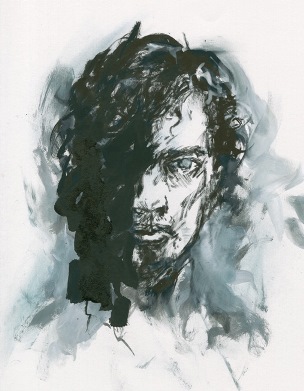
Clive : "Oh, in the artwork? Interesting. Interesting. Oh my mind… you’ve really blindsided me there in the best possible way, Sarah. I don’t critique my visual work in those terms. I went through about 500 drawings last night, some that I couldn’t remember drawing, some from a long, long time ago, some from when I was fifteen, not many but some, and then some when I was very sick and so on and what is interesting to me is that I go through those things and I would say eighty percent of them, maybe more, are faces.
"Bergman once said something that I very much believe in – ‘there’s only one subject for the camera, whether moving or still, and that is the human face,’ and I heard that a very long time ago but I didn’t think much of it, frankly, but for me it’s what I automatically draw: skies and human faces. I could perfectly happily live out my next thirty years and not draw anything but those two subjects, because no two faces are the same, are they? I mean, even though you can say, ‘well he does a big thing with a hawk nose’ or ‘if he’s drawing a pretty guy there’ll be eyes like…’ or whatever, nevertheless I couldn’t find two drawings last night – and I did a count actually; there were 480 of them, there were a lot of them – no two of them resembled each other, not even family resemblance. I don’t know where that comes from, I really don’t know. It’s what I want to draw.
"We could make a joke and say well he likes to draw dicks, I don’t really, anything like the way I like to draw faces. For one thing, by and large, and this is not a joke, dicks are rather similar. Faces carry what it is to be alive, don’t they. They carry sacrifice , they carry sadness, they carry, well, I’ll be honest, I look at my own face now and I’ve been going through a lot of photographs at the same time, the last few weeks, and I’m very, very aware of what’s happened, of the toll the last few years has taken. That’s not me saying, ‘Oh, woe is me,’ it’s me saying that’s the way it is, you know, being sick and then having you know what happened at the same time – and I’ve looked a lot sicker than I am now, a lot sicker, but my face has changed in a way that, though it’s changed before when I’ve been sick, I’ve been ill, I’ve had operations and so on and after my first coma I looked in the mirror and I couldn’t recognise myself but I put the weight back on. This time, not a chance – I’ve found, I think, my final form.
"Both of my grandfathers and one of my grandfather’s fathers were very thin people. You know the pudgy ten-year old whose photo is at the back of Thief of Always has grown into someone who is slightly fatter than Clint Eastwood who is one of the oldest looking guys I ever met but is magnificently handsome, or for me anyway. Not sexually handsome, you understand, but sort of magnificent.
"I once stood next to Gregory Peck, very close to his death, and he was very tall, 6’4” perhaps, the most imperious – not in an egotistical way at all – very softly spoken, very sincere, talked to me for a minute or two, didn’t know who I was from a hole in the wall? You know, he just talked to me and he was so handsome, so beautiful, I mean he must have been in his eighties then and six months from passing away, whenever that was, but he had this magnificence as a man that was there when he was a young man. You see it in the courtroom drama, To Kill a Mockingbird, yes? He’s playing a young man in that but he’s playing a young man who has great moral authority and he doesn’t display it as an attribute which is worthy of display; it is in him, it is of him, yeah?"
Revelations : "As it is in the character of the book so he was perfect for it."
Clive : "Absolutely – but consider this, he also plays Mengele in The Boys from Brazil and carries that off magnificently. And here is the most liberal actor in Hollywood! To watch him play Mengele was profoundly shocking. Isn’t he with Olivier in that? Doesn’t Olivier play opposite him? As the Nazi hunter? And they eventually fight, physically fight, two eighty year olds while dogs are attacking them. You remember that."
Revelations : "It wasn’t a movie I enjoyed. I think I admired it rather than enjoyed it."
Clive : "I’ve nothing bad to say about that. Can you tell me why you didn’t enjoy it? Was it just too preposterous?"
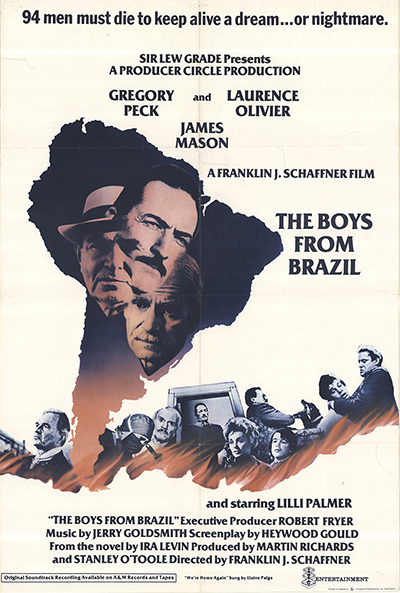
Revelations : "No, I just didn’t engage with the subject matter."
Clive : "Oh God, you’re going to hate my next two books!"
Revelations : "There’s a difference between the after-the-event hunting down…"
Clive : "Yes, there is a little bit… but just a little bit… I mean when they get the last Nazi, yes, when the Israeli forces get the last Nazi and bring him to an Israeli court, I mean this is a man who has killed in the millions, I was satisfied, I needed that. So that idea of pursuit and the man who tracked him down was the real person who was in The Boys from Brazil – Liebermann is it? Marathon Man also carries a Mengele figure – ‘Is it safe?’"
Revelations : "Haven’t seen that."
Clive : "Oh. My. God. See it, see it, see it. See it!"
Revelations : "That sounds like a recommendation."
Clive : "Oh it’s fucking amazing. It is a Schlesinger, so right there, I mean I love John and I love what he did even when he wasn’t playing at his best game, you know. He was a wonderful thriller director, underrated I think for that but the idea of, well, it’s Dustin Hoffman and it’s Roy Schneider and it’s Olivier and it’s a true story so I’ll say no more. It’s completely satisfying as just the way good stories should be."
Revelations : "Sold."
Clive : "Just on John Schlesinger for a moment, you know I knew Dickie Martin who cut for John several times and they were two queens at bay when they were together and it was very entertaining because, you know, Dickie could be snide in a very, very low key fashion you know. A very English fashion, the way you might expect Stephen Fry to be, sneering, but John was an hysteric and wonderful and I was on set with him only three times but it was always wonderful because he was such good theatre. It was operatic was what it was, his sets were run operatically."
Revelations : "Which sets did you visit?"
Clive : "I visited Pacific Heights twice, which is a late picture of his with Michael Keaton and I also visited, and I’m forgetting the title of it, it’s a voodoo movie, with Martin Sheen… The Believers… That’s an easy one to forget because it doesn’t fit the movie whereas, and this is why you’ll discover “Is it safe?” those three words, will mean hugely more after you’ve seen Marathon Man, they will become a bête noire, they will follow you round and whisper it in your ear, not because it’s a graphic movie, I doubt if there’s even any blood in it, but it is fucking terrifying in a totally… Oh, of course there’s blood in it, there’s one very bloody scene, I was forgetting the death of Roy Scheider which is incredibly – "
Revelations : "Spoiler!"
Clive : "No, no, don’t worry, everybody dies in it eventually, there’s practically nobody left! It’s funny, here’s the last joke, it’s funny because Olivier gives exactly the same performance as he gives as Liebermann, even though he’s playing a Nazi and at that point he was severely crippled and his hands were like claws almost, yes? They were so arthritic and he began to use that in his performances. He used them at the National and he used it twice very effectively in those two movies. It makes him both look weak but also somehow or other bestial, like a claw.
"When you’ve see it will you tell me please and I promise I will never whisper ‘Is it safe?’ to you."
Revelations : "Sounds like the opposite of the safe word."
Clive : "Right, it’s the unsafe word!"
Revelations : "Take care, Clive - "
Clive : "Take care, guys - "
visit The Clive Barker Archive to order Imaginer volumes
The Books of Blood - screening this Halloween on Hulu
Candyman - theatrical screenings set for 25 September 2020
Deep Hill
The Imaginer Series
Art for sale in the archive store
Contact us about certificates for original artwork





